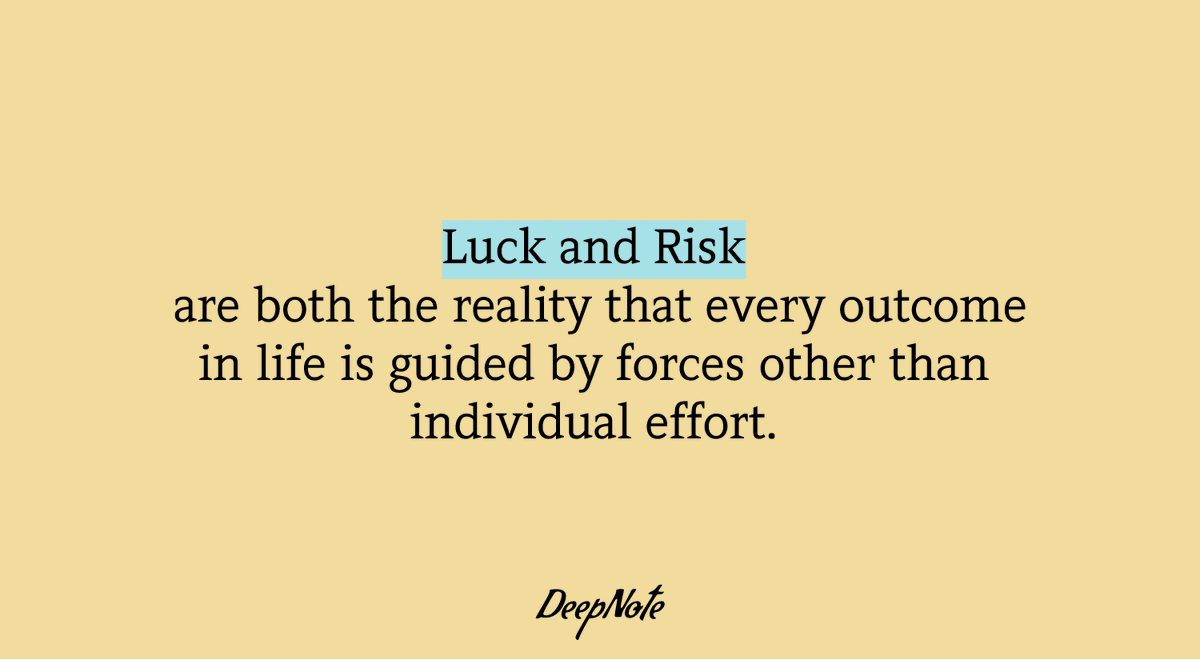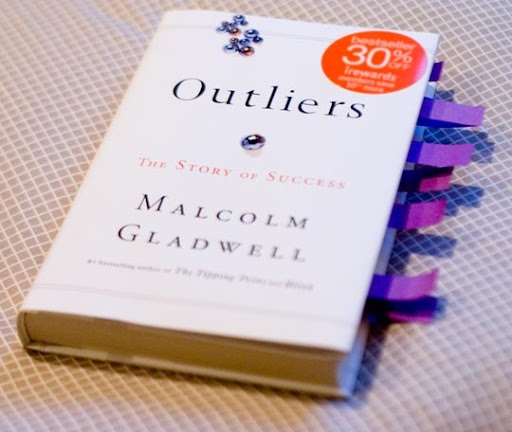
1. Ordinary folks with no financial education can be wealthy if they have a handful of behavioral skills that have nothing to do with formal measures of intelligence.
3. Financial success is not hard science, unlike engineering or doctorate.
It is a soft skill, where how you behave is far more important than what you know.
Knowledge is good but knowing what to do has nothing to do with what goes in your mind before you try to do it.
It is a soft skill, where how you behave is far more important than what you know.
Knowledge is good but knowing what to do has nothing to do with what goes in your mind before you try to do it.
4. All subjects are governed by defined rules - be it physics, chemistry, mathematics, or any other.
Finance, however, is driven by emotions and the psychology and behavior of people
Finance, however, is driven by emotions and the psychology and behavior of people
5. Studying the history of money makes you feel that you understand something pretty well.
Once you understand you assume that you will behave according to the understanding. That's not life at all.
Once you understand you assume that you will behave according to the understanding. That's not life at all.
We have a lot of knowledge but we hardly implement it in our lives.
Until we have lived through those historical experiences and experienced the scars, the triumphs, the emotions, we may not understand it enough to change our behavior.
Until we have lived through those historical experiences and experienced the scars, the triumphs, the emotions, we may not understand it enough to change our behavior.
6. They are doppelgangers. When you are in the stock market, you are one person in a game with 7 billion players and infinite moving parts. 

7. Someone else's failure is usually attributed to bad decisions, and our own failure is usually attributed to bad luck.
Not all success is due to hard work and not all failures are due to laziness. Keep this in mind when judging anyone, including yourself.
Not all success is due to hard work and not all failures are due to laziness. Keep this in mind when judging anyone, including yourself.
9. The hardest financial skill, and one of the most important ones, is to get the goalpost to stop moving.
It gets dangerous when the taste of having more - money, power, or prestige - increases ambition faster than satisfaction.
It gets dangerous when the taste of having more - money, power, or prestige - increases ambition faster than satisfaction.
One step forward pushes the goalpost two steps ahead, and the vicious circle starts. You always feel you are falling behind in spite of achieving so much.
10. There are certain things which are never worth taking a risk, and they define your 'enough of money' in life e.g. Character, Family and friends, freedom, being loved, happiness - to name a few.
If you need or rather, greed for money makes you compromise on these, you got to re-think and define your money boundaries. A clear financial freedom plan helps you define your boundaries.
11. Warren Buffett is a great investor, but his wealth is not just because of being a great investor. There are far better investors than him.
His wealth, apart from being a great investor, is driven by the number of years for which he has been investing now - 75 years.
His wealth, apart from being a great investor, is driven by the number of years for which he has been investing now - 75 years.
12. Good investing is not about getting very high returns. That's not replicable over many years.
Good investing is about getting decent enough returns over decades. That's when compounding turns wild.
Good investing is about getting decent enough returns over decades. That's when compounding turns wild.

13. Getting money, and being able to keep that money are two vastly different skills.
Getting money requires action, taking risks, being positive.
Keeping money requires just the opposite skills - playing safe, being fearful, and a lot of inaction.
Getting money requires action, taking risks, being positive.
Keeping money requires just the opposite skills - playing safe, being fearful, and a lot of inaction.
14. As in the case of airline pilots, investing is all about hours and hours of cruise control punctuated by moments of sheer madness.
An investing genius will do ordinary things when everyone around is going crazy.
An investing genius will do ordinary things when everyone around is going crazy.
15. Tails drive everything in finance. It's normal for a lot of things to go wrong a lot of times.
No one makes good decisions all the time. Buffet has owned 400-500 stocks in his lifetime and made most of his money in at most 10 stocks. Rest was just average.
No one makes good decisions all the time. Buffet has owned 400-500 stocks in his lifetime and made most of his money in at most 10 stocks. Rest was just average.
16. We will all go right as well as wrong in our decisions.
But how much money we make when we are right, and how less we lose when we are wrong - will decide our future wealth.
But how much money we make when we are right, and how less we lose when we are wrong - will decide our future wealth.
17. The freedom to do what you want, when you want, with whom you want, for as long as yo want, is true freedom.
This is the highest form of dividend that your money can pay you. Money's greatest intrinsic value is its ability to get you control over your time.
This is the highest form of dividend that your money can pay you. Money's greatest intrinsic value is its ability to get you control over your time.
18. Doing something you love on a schedule you don't want, is equivalent to doing something you hate.
19. We, as humans, in spite of all the technological advancements have lost control over our personal time, and loss of this control is the key to unhappy lives today
21. You might think you want a big house, a fancy car, and an expensive watch.
But this is not the inner truth. The fact is that you want respect and admiration.
But this is not the inner truth. The fact is that you want respect and admiration.
You might think that the expensive stuff may help you get respect and admiration, but it rarely does, especially from the people you want to admire or respect you.
22. Wealth is what you do not see. House, cars, vacations, etc is not wealth.
Assets, investments that have not yet been converted into houses, cars, and vacations define your wealth.
Assets, investments that have not yet been converted into houses, cars, and vacations define your wealth.
23. Rich is the current income. Wealth is income not spent. Wealth is hard because it requires self-control.
25. Building wealth has little to do with your income or investment returns but a lot to do with your savings rate. There is a lot of uncertainty and risk in the first two. 3rd is the only factor that you control.
You can build wealth without a high income, but there is no way you can build wealth without a high savings rate.
26. Being rational and technically correct may not be enough to stick in the game. It is more important to be reasonable to yourself.
Being reasonable allows you to stay in the game longer, and the longer you stay, the more wealth you create.
Being reasonable allows you to stay in the game longer, and the longer you stay, the more wealth you create.
27. History rarely tells you anything about the future of investments, because unlike the planet for astroscientists, or the human body for doctors, investors are indeed emotional.
28. Past surprises cannot be used as a guide to define future boundaries.
Use past surprises as an admission of the fact that we have no idea what might happen next.
Use past surprises as an admission of the fact that we have no idea what might happen next.
29. There will always be unprecedented events, for which we will never be prepared, and therefore, will have a massive impact on how the world operates. 

30. Since economies evolve, recent history is often the best guide to the future because it is more likely to factor in conditions that are still relevant today.
The farther back you go in history, the more general your takeaways would be e.g. human emotions haven't changed much over the last 100 years.
32. People are poor forecasters of their future self. Only 27% of college graduates have a job related to their major subject.
Plans will change because we change. Hence, your plan has to be adaptable to changes as you move along creating wealth.
Plans will change because we change. Hence, your plan has to be adaptable to changes as you move along creating wealth.
33. The price that you pay for good investment returns is to withstand the market volatility. It is definitely not an easy price to pay.
Not everyone will be able to pay for it. Most people who try to go in and come out and try to time the market is trying to get good returns without paying the price - something that never works.
34. Short term trading is rational, natural, and expected. But long term investors cannot afford to be driven with that.
35. Spend enough time identifying your game and stick to it. And realize that different players are playing different games with a different set of rules.
A lot of money is lost in trying to copy the actions of other players, resulting in financial disasters.
A lot of money is lost in trying to copy the actions of other players, resulting in financial disasters.
36. Extremely good and extremely bad circumstances rarely remain that way for long because supply and demand adapt in hard to predict ways. 

37. Growth is driven by compounding, which can take decades, and therefore, hardly gets to be noticed.
Destruction is driven by single points of failure or loss of confidence, which happens almost instantly, and grabs instant attention.
Destruction is driven by single points of failure or loss of confidence, which happens almost instantly, and grabs instant attention.
38. We know a lot less about how the world works than what we think we do.
39. The ability to explain the past gives us the illusion that the world is understandable.
That's enough to do blunders in personal finance.
That's enough to do blunders in personal finance.
41. Risk is what is left over when you think that you have thought through everything. Any predictions are illusionary.
43. My investing strategy doesn't rely on picking the right sector or timing the next recession.
It relies on a high savings rate, patience, and optimism that the economy would generally do well in the decades to come.
It relies on a high savings rate, patience, and optimism that the economy would generally do well in the decades to come.
- Thanks for reading this thread.🙏
- Please push the RT button on the very first tweet to let your friends know.👍
- Make sure to FOLLOW (@1DeepNote) for more book reviews.✌️
- Please push the RT button on the very first tweet to let your friends know.👍
- Make sure to FOLLOW (@1DeepNote) for more book reviews.✌️
https://twitter.com/1DeepNote/status/1438806771838201860?s=20
• • •
Missing some Tweet in this thread? You can try to
force a refresh




















